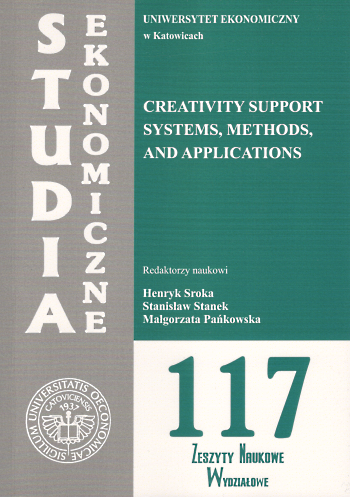
Publisher: University of Economics in Katowice (2012)
165 pages
ISBN: 978-83-7875-032-1
Creativity Support Systems, Methods and Applications
Research Papers No.117
Henryk Sroka, Stanisław Stanek, Malgorzata Pankowska (eds.)
The first decade of the 21st century inscribed as a period of fast progressing evolution of economies and entrepreneurship being a permanent element of the transformation of the world and humanity. Contemporary business organizations have been faced with a growing need to focus more on creativity and innovation in order to keep up with increasing global competition. Business units creativity and innovation are enhanced through the introduction of computer support systems, tools and methods.
The aim of this book is to improve our understanding of creativity support system environments. The various chapters analyse creative and innovative activities as carried out by individuals, groups and organizations. The book's focus is on identifying and understanding the factors relating to the working environment that are conducive to human creativity and innovation.
The book is likely to be of interest to students and scholars in a number of research fields as well as to science and innovation policy decision makers concerned with research, teaching and policy measures for the development of creativity support system environments.
The chapters forming the book illustrate various approaches to the analysis of creativity support systems, methods and applications. The chapters were discussed at the international sessions within the 27th Conference on Organizational Support Systems. The construction of creativity support systems involves the development of a creative organization and is located in the area of interdisciplinary research. A rich variety of methods, techniques and applications are used to achieve the creativity and innovation goals, many of them are presented in the book.
![Send mail [Send mail]](mailto.gif)

![Homepage [Home]](back.gif)